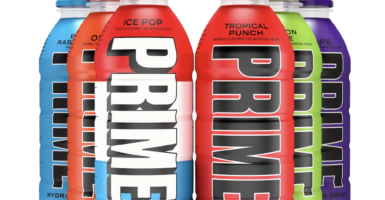Whole Foods Accused Of Lying To Its Customers
Whole Foods has been placed in the legal hot seat after a watchdog organization determined the store may be lying to customers.
This article is more than 2 years old

Whole Foods is the store everyone loves to hate. Thanks to their occasionally weird product offerings (enter asparagus water), the eclectic customer base, and high prices on countless products, they regularly find themselves front and center in the news. These serve as food for endless great jokes and have even inspired a rap song. But the latest news about Whole Foods is no laughing matter.
The company is currently facing a lawsuit that began with three consumer plaintiffs. Now, the nonprofit organization Farm Forward has joined the suit. The problem? They alleged that Whole Foods uses false and deceptive advertising to sell its meat.
Whole Foods traces its origins back to 1980 in Austin, TX where four business owners teamed up to create the first natural foods supermarket. Its goal ever since – source and sell only the highest quality products possible. Since then, the company has made tremendous waves in the natural food and grocery industries.
One of the cornerstone offerings is their meat selection. According to labeling employed by Whole Foods for years, their beef contains “No antibiotics, ever.” This promise helped assuage customers’ concerns over the heavy antibiotic use in conventional meat production. They became a trusted source of high-quality beef.
In 2008, the Global Animal Welfare Project (GAP) began. It was the brainchild of John Mackey, the co-founder of Whole Foods. The mission is to certify and rate the quality of meat consumers buy at the store. Between GAP ratings and Organic certification labels, many were willing to shell out top dollar for a premium product. Both the USDA Organic certification body and GAP prohibit the use of antibiotics in their certified meat.
So it was surprising when Farm Forward got the results from independent testing they conducted back in April. The results showed trace amounts of monensin in the tested beef. Monensin is an antibiotic, which brings Whole Foods’ claim of “no antibiotics, ever.” into question.
Farm Forward subsequently joined the existing customer lawsuit against Whole Foods. It does not allege Whole Foods lied about the antibiotics. But it does claim the Amazon-owned grocer is misleading customers with deceptive advertising. The lawsuit also suggests Whole Foods caused economic harm to its customers since the certified beef gets sold at a premium price point, well above that of conventional meat.
Farm Forward has deep ties to Whole Foods and the Global Animal Partnership, having worked closely with both for years. Mackey sat on their board for roughly eleven years. And Farm Forward was part of GAP’s board until recently. They resigned over concerns about the very claims laid forth in the lawsuit.
The implications of this lawsuit extend well beyond Whole Foods, however. The broader concern for Farm Forward is the meat industry as a whole. Organic ranchers face a significant problem, as antibiotics are beginning to leech into the groundwater and soil. The trace amounts could get into the feed and water offered to the stock.
Farm Forward hopes that this lawsuit against Whole Foods will help drive the change the industry needs. The nonprofit believes the presence of antibiotics is general knowledge in the industry. So, companies are deceiving customers with their “antibiotic-free” labeling. With news of the lawsuit reaching consumers, perhaps more advocacy groups will step forward to help.





